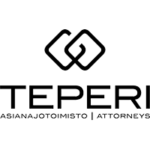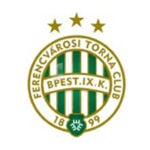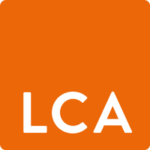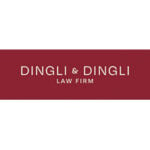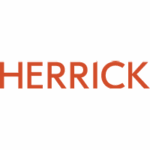-
Do you have a specific sport tribunal in your country to decide sports-related domestic issues for one or more disciplines? Are there any other sports-specific alternative dispute resolutions in your country, i.e. mediation, conciliation, or sports ombuds instance? Are there cases that can or cannot be submitted to a specific sports tribunal or cannot be subject to arbitration (e.g. labor disputes)?
In Denmark, each individual member federation of the National Olympic Committee and Sports Confederation of Denmark (“DIF” or “NOC”) is obliged to establish its own internal dispute resolution body to decide on sports-related disputes, mainly disciplinary issues. The decisions of these dispute resolution bodies are appealable to the NOC Court of Appeal, which acts as the highest judicial body within the DIF.
In addition to the member federations’ dispute resolution bodies, three centralised first-instance tribunals exist, i.e. the NOC Match-Fixing Tribunal, the NOC Anti-Doping Tribunal and a Tribunal for cases on Child Sexual Abuse, all of whose decisions are also appealable to the NOC Court of Appeal.
In addition to the dispute resolution system of the DIF, the parties have the option of agreeing that a sports-related dispute may be submitted to ordinary arbitration unless otherwise provided. A range of individual member federations, for instance the Danish Football Association (DBU) and the Danish Handball Federation, have also established their own arbitration tribunals to hear, inter alia, civil disputes among its members arising out of matters related to football/handball.
Athletes, clubs and other sports stakeholders may also have a sports law dispute settled by the ordinary courts of law unless express provisions have been made to preclude such access.
-
How is Sports law codified in your country? Is there a specific Statute or Code? Are there national sports authorities, independent agencies, or government ministries responsible for oversight?
Denmark does not have a single codified “Sports Act” or a specific sports code. The organisation of Danish sport is based on the freedom of association and is therefore an independent and autonomous sector. However, most sports clubs that undertake professional sports activities typically operate in corporate form, i.e. either as a public limited company (A/S) or as a private limited company (ApS) subject to both company law and accounting regulations.
DIF, like other organisations, is subject to Denmark’s general legal rules in addition to the EU’s rules and regulations, including not least the European Convention on Human Rights. The DIF has attempted to adapt its legal system in such a way that it meets the demands that society places on a legal system, i.e. a traditional state constitutional structure with clear rules of separation of powers, etc.
The DIF receives its financial support from the Ministry of Culture, but generally the Danish government seldom interferes in sports matters, and the sports sector therefore benefits extensively from being covered by the principle of freedom of association, enjoying a high degree of independence and autonomy.
-
Advertising and marketing in sport: which are the limitations foreseen in your country, for instance in relation to alcohol, tobacco or betting advertising on or around sports infrastructure, on official clothing, etc.?
Gambling operators, who hold licences to provide gambling in Denmark, must comply with the rules on marketing stipulated in the Danish Act on Gambling. Furthermore, the marketing must also be in accordance with the Danish Marketing Practices Act, which require truthful presentation of winning chances, prohibit targeting under-18s, forbid misleading celebrity endorsements, prevent advertising that implies gambling can solve financial or social problems and comply with the general provision to exercise fair trading practices with reference to consumers, other traders and public interest.
With reference to this general provision, various guidelines for fair trading practices have been drawn up, and any violation of these guidelines will essentially be tantamount to a violation of the provisions of the Marketing Practices Act. To give an example, AlkoholReklameNævnet (the Danish Alcohol Advertising Board) stipulates in its guidelines that marketing is not allowed to link alcoholic beverages to the active practice of sports.
-
Match-fixing: How is match-fixing and other forms of match manipulation combated in your country? Has your country ratified the Macolin Convention? What is the role of the sports betting industry in your country and is it subject to any specific state regulations?
Although match-fixing and other forms of unethical manipulation of sporting events and results are not a new phenomenon, it was only in 2013 that DIF adopted a general code (“LOVREGULATIV VIII – OM FORBUD MOD MANIPULATION AF IDRÆTSKONKURRENCER (MATCHFIXING) OG TILSVARENDE UETISK ADFÆRD” – in English: “Code VIII Prohibiting the Manipulation of Sporting Competitions (Match-Fixing) and Similar Unethical Conduct”) to combat the manipulation of sporting competitions. This code of conduct applies to the full spectrum of DIF sports and includes all athletes, coaches, managers, referees, etc. in all sports under the auspices of DIF. Violation of the code may result in exclusion from all organised sports in Denmark.
The code prohibits match-fixing where an attempt is made to obtain a direct or indirect financial gain or benefit. Match-fixing to obtain a strictly sports-related benefit or gain, for instance a victory in a lower-ranking amateur class, will consequently not be prohibited under this code, but perhaps under supplementary rules that have been adopted by the relevant sports federation.
For example, in 2014, in addition to this code, the Danish Football Association (DBU) adopted its own code of conduct (Circular No. 86), which, among other rules, prohibits betting on the course or outcome of football matches in a tournament where the person concerned has close ties with one or more of the teams or with the tournament as such. This prohibition is independent of whether there is any specific suspicion of manipulation of the match concerned and may, accordingly, be seen as a preventive prohibition designed to show zero tolerance in this regard to football players, and to avoid situations where there may be doubt about the credibility of football matches under the auspices of the DBU.
Moreover, this code of conduct imposes an obligation on all DBU stakeholders, including employees, managers, coaches and players, as well as referees and football agents, to inform the DBU as soon as possible of any action of which the relevant person has knowledge that is or was intended to agree or influence the course or outcome of a football match or, in the case of a football match, any other events of the football match.
In 2016, a common platform was established: The National Platform for Combating Match-Fixing, which consists of the following nine members:
- Danish Ministry of Culture
- Director of Public Prosecutions
- State Prosecutor for Serious Economic and International Crime
- Danish Gambling Authority
- National Olympic Committee and Sports Confederation of Denmark (DIF)
- Danish Football Association (DBU)
- Danske Spil
- Danish Online Gambling Association
- Anti-Doping Danmark
Common to these members is that they all have a desire or duty to prevent and combat match-fixing as part of their activities.
The Danish Gambling Authority is also responsible for analysing information about suspicious betting on sports and disclosing information about possible violations to relevant national and international authorities and organisations, as well as for operating the whistleblower hotline “stopmatchfixing”.
The DIF has established a scheme in certain professional and semi-professional leagues where clubs appoint an integrity officer whose main task is to communicate knowledge about match-fixing and betting rules to players and others and to act as a link between the club and the DIF Match-Fixing Secretariat in specific cases.
At the time of writing, Denmark has not ratified the Macolin Convention.
(Please see section 6 below regarding criminal law regulation of match-fixing and other offences, including match-fixing without seeking to obtain a financial gain or benefit.)
As far as the national legal regulation of betting companies is concerned, all companies offering betting or online casino services aimed at the Danish market are subject to the Danish Gambling Authority (under the Ministry of Taxation) and needs to possess a Danish gambling licence among other requirements.
Betting companies are obliged to provide gamblers with tools for self-control, for example by setting deposit and time limits and offering self-exclusion options, and the Danish Gambling Authority operates a register where gamblers can exclude themselves from all licensed games in Denmark. In addition, as stated in section 3 above, various rules are set out for the marketing of betting and online casino services.
-
Is there an institution safeguarding the integrity across sports in your country, e.g. ethics and doping violations or abuse cases? Which rules does such an institution apply?
Apart from the above-mentioned first-instance tribunals dealing with violations relating to anti-doping, match-fixing and child sexual abuse, the DIF has established an Ethics Committee with an affiliated whistleblower scheme based on a number of governance recommendations.
The Ethics Committee issues opinions and recommendations regarding good governance and ethics in cases of significant and general importance to the DIF and its member federations. The opinions and recommendations of the Ethics Committee are not binding decisions, but should serve as a guidance for future issues, and as a result, no specific rules apply to its “opinion-making”.
-
How is corruption in sport regulated in your country? Is corruption between private individuals subject to criminal or civil liability and are there any sport specific corruption regulations?
Bribery is punishable under section 299(2) of the Danish Criminal Code. According to this provision, both active and passive bribery in the private sector is punishable. Similarly, fraud is punished under section 279 of the Criminal Code. Punishment under these provisions presupposes, in theory, a financial motive.
Until 2015, Denmark had no sports-specific corruption provisions. It is only with the adoption of the Danish Act on the Promotion of Integrity in Sports (“Lov om fremme af integritet i idrætten”) that the manipulation of sporting competitions without a financial motive, under the said statute, was punishable by imprisonment for a term not exceeding two years.
-
How is fan behavior regulated by law (for example banning orders, criminal penalties for violence, specific laws addressing measures against violence at sporting events etc.)?
Denmark has, among other things, passed an Act on Security at Certain Sporting Events (“Lov om sikkerhed ved bestemte sportsbegivenheder”). The purpose of the statute is to prevent crowd disturbances and increase security in connection with certain sporting events, primarily football matches.
According to the Act, the police are given the authority to pass on information about persons for the purpose of identification to sports clubs for the purpose of granting or enforcing private quarantines (club quarantines). Furthermore, the police can issue orders to move the time of certain sporting events (football matches) where necessary to protect essential public interests, including the safety and security of individuals. In addition, the police are authorised to expel and ban people who exhibit unsafe behaviour in connection with certain sporting events from the place where the event is held. Bans may be issued for a period of up to two years. In more serious cases, a ban may be issued for up to four years.
Finally, prior to the holding of a certain sporting event, the police may issue an order that spectators in certain spectator sections must be detained at the place where the event is held after the event has ended.
In addition, the Danish Data Protection Authority has granted permission for the clubs in the Superliga and First Division to use facial recognition technology to improve security at football matches.
-
What legal frameworks exist around the ownership and governance of professional sports clubs (e.g. foreign ownership restrictions, fan ownership models, licensing requirements)?
In Denmark, there are no general national rules of law prohibiting particular ownership structures or types of business entities in Danish sports clubs, nor are there any formal rules restricting foreign investment in or ownership of such clubs.
After a number of years of strong (negative) focus on ownership changes in Danish football, not least due to a series of unfortunate incidents involving foreign owners, some of whom allegedly had little interest in or knowledge of Danish football, the Danish League has now adopted a code of rules for ownership changes in relation to clubs participating in the men’s national football championships.
According to these rules, in the event of a transfer of any significant ownership interest in a club participating in the men’s national football championships, the Danish League must be notified thereof immediately, and certain information about the new owner and ownership structure must be submitted without delay, such as financial information for the future beneficial owner.
On the basis of this information, a decision will be made as to whether the contract licence can be retained/granted anew, the purpose of the assessment being to ensure the integrity and reputation of football and the tournament.
Contract licences are generally granted unless one or more of the following conditions apply to the transferee or its beneficial owners:
- The transferee has previously been convicted of financial crime, including tax evasion and money laundering, or other serious offences;
- A disqualification order has been imposed, or the transferee has a significant and extensive bankruptcy history in any other manner;
- The transferee operates in countries with high rankings on corruption and/or money-laundering or terrorist-financing indices;
- The transferee exercises significant influence in a betting company;
- The transferee owns a football agent business or is registered as a football agent;
- The transferee is subject to ultimate control by nation states.
In addition, other circumstances that pose a significant risk to the integrity or reputation of football and tournaments may specifically form the basis for refusal.
Furthermore, the transferee, or a representative professionally affiliated with the transferee, must submit a solemn declaration that the transferee is familiar with various regulations and agreements, including the rules and regulations of the Danish League and the Collective Agreement between the Danish Professional Footballers Association and the Employers’ Association of the Danish League.
-
Do you observe an increase in multi-sport ownership in your country, either across various sports or within one sport or sports discipline?
While multi-sport ownership across sports is not very common in Denmark, a large increase in multi-club ownership has nonetheless been observed in recent years, especially through the acquisition of or investment in Danish football clubs by investors who also own or have significant ownership interests in other foreign clubs.
There are no general national rules of law in Denmark that prohibit or restrict multi-sport/multi-club ownership structures in general within Danish sports.
However, the Danish League has, for example, laid down a number of rules in the area of men’s football to ensure independence between the league clubs (Circular No. 42 2024).
It follows from these rules that if a person or group of persons exercises significant influence over one club participating in the men’s national football championships, that person or group of persons may not directly or indirectly own more than 20% of the ownership interests or voting rights in, or otherwise exercise similar influence over, another club participating in the men’s national football championships.
If the two clubs play in the same league, that person or group of persons may not directly or indirectly own more than 10% of the ownership interests or voting rights in, or otherwise exercise similar influence over, the other club participating in the men’s national football championships.
Moreover, the rules stipulate that no person may be a board member or registered CEO of more than one club participating in the men’s national football championships.
If one or more of these prohibitions are violated, the Disciplinary Panel of the DBU may revoke the licence of one or more of the league clubs involved to engage in contract football activities.
-
Are there any mandatory national provisions, apart from regulations of international sports governing bodies, which regulate athlete representation in your jurisdiction and are there specific limitations to the representation of athletes, such as e.g. provisions regarding dual representation, caps on agent commissions, regulations on the protection of minor athletes?
Denmark does not have any mandatory national provisions which regulate athlete representation, apart from the regulations laid down by the international sports governing bodies and any regulations implemented on that basis, football having the most extensive set of rules.
-
Are there national statutory frameworks, apart from regulations of international sports governing bodies, or cases concerning the participation of transgender athletes in competitive sport in your country? How is the issue currently regulated and/or debated?
Denmark does not have a common body of statutory rules concerning the participation of transgender athletes in competitive sport.
As a follow-up to the emerging debate, in December 2021, the National Olympic Committee and Sports Confederation of Denmark published the report entitled “Inklusion af transkønnede, interkønnede og non-binære i idrætten – Anbefalinger til specialforbund og idrætsforeninger” (in English: “Inclusion of transgender, intersex and non-binary people in sport – Recommendations for sports federations and sports clubs”).
In this connection, the report identified and addressed the primary dilemmas related to gender identity issues in sport, namely: (i) the value of ensuring that sport should be for everyone and that everyone should feel welcome; (ii) the value of ensuring that sporting competitions should be equal and fair; and (iii) that there are fundamental safety issues in sport that also need to be taken into account.
In addition, the report emphasised the principle that each sports federation is entitled to adopt its own rules on the conditions any person is required to meet before participating in the sport in question. The sports federations operate in the sphere of civil society where participation in a sport is an opportunity and not a right.
Against this background, the report listed a number of non-legally binding pieces of advice for the sports federations and sports clubs:
Advice no. 1: Address the dilemmas surrounding gender identity issues so that they do not come as a surprise when the situation arises.
Advice no. 2: Uncover how ’gendered’ the sport is and, therefore, how important it is to be big, strong and enduring.
Advice no. 3: Let the male ranks be open to everyone as the physical characteristics of transgender, intersex and non-binary people do not create competitive advantages.
Advice no. 4: Let inclusion be paramount in grassroots and fitness sports, as this is primarily about inter-communal relations, improved health and the free space rather than sports results.
Advice no. 5: Make inclusion a key factor in sport for children and young people, as children – regardless of gender identity – often just want to be with friends and like-minded people.
Advice no. 6: Create an inclusive culture in sport. This includes setting limits on language and creating inclusive facilities and environments where everyone feels safe.
Advice no. 7: Let equal competition be a major factor in women’s elite sport to prioritise the large group of women who have been assigned female gender at birth.
Various sports federation have subsequently prepared their own reports and recommendations for both grassroots and elite sports, including for example the DBU regarding Danish football, where one of the conclusions was that the DBU should put pressure on FIFA and UEFA to ensure that actual rules and guidelines are drawn up in the area of transgender, intersex and non-binary people in elite and grassroots football.
Most recently, the local union DBU Zealand has decided to let a person’s civil registration (CPR) number (male or female) determine in which league a person is allowed to compete. In Denmark, people aged 18 or over can send a written application to the relevant authority if they want a legal gender change. There will then be a reflection period of six months before they can confirm their application in writing and have the opportunity to be assigned a new CPR number that corresponds to the gender to which they feel to belong.
-
What is the legal framework for e-sports in your jurisdiction? Is there a specific Statute or Code in your country or motions to implement such?
The professional esports ecosystem is highly divergent, as each publisher pursues its individual strategy with esports. Since the publisher has full legal control over the esports title due to the bundling of all exclusive and unrestricted rights of exploitation, utilisation and commercialisation regarding intellectual property, namely the “video game”, there exists no specific legal framework for esports in Denmark. However, esports athletes working in or from Denmark must adhere to the substantive laws of Denmark.
The National Olympic Committee and Sports Confederation of Denmark has so far worked with esports by incorporating esports disciplines into the existing member federations, such as E-cycling under the Danish Cycling Union, E-racing under the Danish Automobile Sports Union and E-sailing under the Danish Sailing Union, instead of for instance adopting Esports Denmark as a member federation. This approach has been a way to include esports in the traditional sports world, while maintaining focus on the existing member federations and their structures.
Due to the dominant power of video game developers/publishers the federations in esports – such as Esport Denmark, which is financially backed by the Danish Ministry of Culture at least until 2026 – cannot be directly compared with those of traditional sports. They are primarily lobbying groups dedicated to promoting esports. However, the Olympic Esports Games may affect federations impact in the future, at least in less popular esport games titles.
-
Which has been the leading sports law case of the past year in your country?
One of the most important cases in the world of sports law in recent times concerned whether the gambling company Bet365 had infringed the rights of a number of Danish elite athletes by using images and names of athletes on their Facebook and Twitter profiles for commercial purposes without consent.
Bet365 argued, among other submissions, that the use of the elite athletes’ images and names must be regarded as statements protected by Article 10(1) of the European Convention on Human Rights and by the corresponding provision of Article 11 of the Charter of Fundamental Rights of the European Union.
The Danish High Court first found that the European Court of Human Rights has established that Member States have a relatively wide discretionary margin when assessing whether an interference with commercial freedom of expression is necessary for reasons of fair trading practices.
Next, the High Court found that elite athletes have a right to protection against invasion of privacy, including a right to protection of reputation, in accordance with general principles of Danish law and under section 3(1) of the Danish Marketing Practices Act, cf. also Article 8(1) of the European Convention on Human Rights.
As the High Court also found that Bet365’s posts with the use of the elite athletes’ images and names had to be regarded as serving a purely marketing purpose, the use of the individual posts, based on their contents, was deemed to constitute a violation of the elite athletes’ right to their own images and names and of their right to protection of reputation – in which connection they must be considered to have a significant interest in not being associated with a gambling company like Bet365 without having consented to this.
In regard to the purpose and contents of the posts, it was thus not considered to be contrary to Article 10(1) of the European Convention on Human Rights and the corresponding provision of Article 11 of the Charter to find that the elite athletes’ right to their own images and/or names had been violated and that Bet365, as a result, should pay compensation and remuneration for the use made.
-
What other sports law topic(s) would you highlight as being very current and relevant in your country?
As mentioned above, the debate on the participation of transgender athletes in both competitive and non-competitive sport has become increasingly intense in Danish sports in recent years
For example, there is no internal agreement between the local unions in the DBU on the issue, which is expected to generate further debate in the years ahead.
Denmark: Sports Law
This country-specific Q&A provides an overview of Sports laws and regulations applicable in Denmark.
-
Do you have a specific sport tribunal in your country to decide sports-related domestic issues for one or more disciplines? Are there any other sports-specific alternative dispute resolutions in your country, i.e. mediation, conciliation, or sports ombuds instance? Are there cases that can or cannot be submitted to a specific sports tribunal or cannot be subject to arbitration (e.g. labor disputes)?
-
How is Sports law codified in your country? Is there a specific Statute or Code? Are there national sports authorities, independent agencies, or government ministries responsible for oversight?
-
Advertising and marketing in sport: which are the limitations foreseen in your country, for instance in relation to alcohol, tobacco or betting advertising on or around sports infrastructure, on official clothing, etc.?
-
Match-fixing: How is match-fixing and other forms of match manipulation combated in your country? Has your country ratified the Macolin Convention? What is the role of the sports betting industry in your country and is it subject to any specific state regulations?
-
Is there an institution safeguarding the integrity across sports in your country, e.g. ethics and doping violations or abuse cases? Which rules does such an institution apply?
-
How is corruption in sport regulated in your country? Is corruption between private individuals subject to criminal or civil liability and are there any sport specific corruption regulations?
-
How is fan behavior regulated by law (for example banning orders, criminal penalties for violence, specific laws addressing measures against violence at sporting events etc.)?
-
What legal frameworks exist around the ownership and governance of professional sports clubs (e.g. foreign ownership restrictions, fan ownership models, licensing requirements)?
-
Do you observe an increase in multi-sport ownership in your country, either across various sports or within one sport or sports discipline?
-
Are there any mandatory national provisions, apart from regulations of international sports governing bodies, which regulate athlete representation in your jurisdiction and are there specific limitations to the representation of athletes, such as e.g. provisions regarding dual representation, caps on agent commissions, regulations on the protection of minor athletes?
-
Are there national statutory frameworks, apart from regulations of international sports governing bodies, or cases concerning the participation of transgender athletes in competitive sport in your country? How is the issue currently regulated and/or debated?
-
What is the legal framework for e-sports in your jurisdiction? Is there a specific Statute or Code in your country or motions to implement such?
-
Which has been the leading sports law case of the past year in your country?
-
What other sports law topic(s) would you highlight as being very current and relevant in your country?


